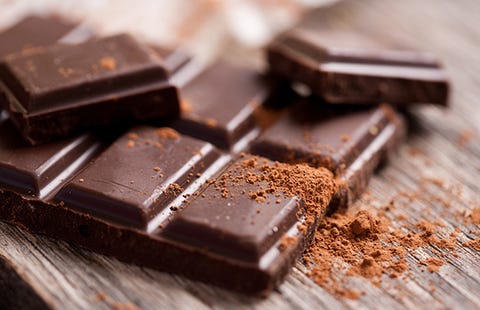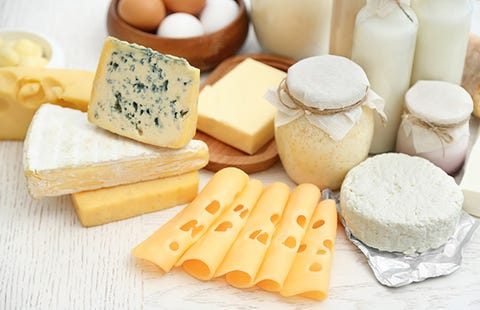Can You Drink Coffee on an Elimination Diet
Jen Muller's headache came on without warning. It was a few days after she'd given birth to her third child—a boy, delivered via C-section just like his two older brothers. "The delivery was totally normal, no complications," says Muller, 36, of Bala Cynwyd, PA. "I came home from the hospital, and I woke up one morning with a headache."
Which was strange. "I'd never had any sort of migraine or headache issues before this," she says. When the headache stuck around for a few days, she called her doctors. "They did all the typical postpartum checkups, looking for things like preeclampsia or high blood pressure, or something with my hormones or thyroid," she says. "They also did MRIs to look for blood clots or brain stuff, but it all came back normal."
These tests spanned several months. And all that time, Muller's migraine persisted. "It would peak in the afternoon, but it was there 24/7—this pain in the back of my head and my neck," she recalls. "It was debilitating."
MORE:Try This 60-second Fix For A Stiff Neck
Her doctors eventually performed two separate procedures to patch "leaks" that might have resulted from the spinal epidural she received during her delivery. "They weren't convinced that was the problem, but that was the only thing they figured could be causing the headaches," she says. Neither relieved her pain.
Without a solution—or even a firm diagnosis—Muller eventually consulted with David Buchholz, MD, a migraine specialist at Johns Hopkins Medicine and author of Heal Your Headache, a book that advocates cutting out foods that are known headache triggers.
It may sound odd, but your head and gut appear to be closely connected. While still controversial, inflammation caused by improper digestion may fuel migraine headaches, according to a study in Frontiers in Neurology. Migraines are also more common among people with gut conditions like celiac disease or inflammatory bowel diseases, research shows.
Because her migraines seemed to stem from a specific event—her C-section delivery—Muller says Buchholz wasn't sure his elimination diet would work for her. But she was ready to try anything to stop the pain.

Tatyana Domnicheva/Shutterstock
Buchholz told her to ditch caffeine, chocolate, dairy, processed meats and fish, MSG, and lots of other foods. "Avoiding all boxed or processed stuff was big," Muller says. "Basically anything with additives was out."
MORE: 16 Highly Effective Migraine Solutions
Like those employing elimination diets to treat other health conditions—particularly digestion-related diseases like IBS—Muller had to quit her no-no foods cold turkey.
"You want to remove all potential triggers to see if symptoms will subside," explains Kate Scarlata, RDN, who has authored or coauthored several best-selling books on elimination diets—specifically low-FODMAP diets.
FODMAP is an acronym for several categories of short-chain carbohydrates, which include lactose in milk and milk products, as well as some sugars and carbs found in common fruits, vegetables, and grains. Research is piling up in support of low-FODMAP diets for bowel disorders, and Scarlata says her clinical experience suggests they can also help some migraine sufferers. (Here are 51 foods that may be making your gut misterable.)

avs/Shutterstock
Here's how these diets work: After consulting with a physician to rule out any nondiet health issues, you'd speak with a registered dietitian to assess if an elimination plan is right for you and to learn how to safely cut foods from your diet, Scarlata explains. You're removing a lot of stuff, she says, so you need an expert's help to ensure you're getting all the nutrients your body needs.
"The first stage of the diet involves avoiding all trigger foods for 2 to 6 weeks," she says. That means sticking to a diet h in protein—stuff like eggs, chicken, and fish—as well as spinach, seeds, some nuts, lactose-free foods, and gluten-free products.
While some people immediately experience relief, it takes longer for others, she says. If the first stage is a success—meaning your symptoms improve or vanish—the second stage involves "challenging" your system by reintroducing the foods one at a time.
"For example, for lactose, I'd have you drink half a cup of milk one day, then a full cup the next day and maybe the day after," Scarlata says. "If we get through three days and you haven't reacted with any of your prior symptoms, you can keep consuming milk and we can move on to the next food."

Africa Studio/Shutterstock
She says most people identify several food triggers when working through this challenge stage. "And they're often surprised at which foods are problematic for them," she says.
Muller says Buchholz's migraine elimination diet follows this same premise. As of today, she's been on the total-elimination phase of her eating plan for almost 4 months and plans to start reintroducing foods soon. In combination with the medications her doctors prescribed to lessen the severity of her headaches—specifically, a nerve-pain drug called topiramate—the elimination diet has brought her some relief. "On a scale from 1 to 10, I'd say my headaches are usually a 4 or 5 now, when they were an 8," she says. (Here are the top 10 most painful medical conditions, according to doctors.)
Scarlata says Muller's experience—that is, a softening of symptoms rather than total relief—is common when it comes to elimination diets, including FODMAP-centric plans. But many people do experience "complete symptom resolution," she says.
Markham Heid Markham Heid is an experienced health reporter and writer, has contributed to outlets like TIME, Men's Health, and Everyday Health, and has received reporting awards from the Society of Professional Journalists and the Maryland, Delaware, and D.C.
This content is created and maintained by a third party, and imported onto this page to help users provide their email addresses. You may be able to find more information about this and similar content at piano.io
Can You Drink Coffee on an Elimination Diet
Source: https://www.prevention.com/food-nutrition/a20509930/this-is-what-its-like-to-go-on-an-elimination-diet/